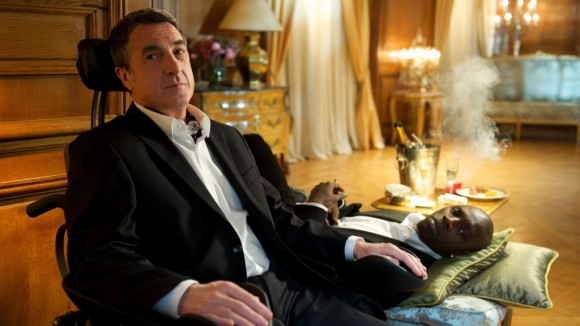
The ceremonies of the 86th “Oscars” and of the 39th “Césars” took place this week within two days of each other. In comparison with the glamorous and giant show of the American Academy Awards, the French Césars seemed almost like an intimate affair. But for the French it is very important as a way to evaluate the status of the film industry and for professionals in this field to reassert their contribution to the country’s Culture (note that ‘Culture’ is usually spelled with a capital “C” in France.)
In recent years – and this a very personal opinion – the French art of making films has been losing its edge as a leader in the industry, as it did for instance during the days of the Nouvelle Vague associated with the names of François Truffaut, Claude Chabrol and Jean-Luc Godard in the late 1950s. Nowadays, the subjects of the films are so specifically French as to be un-exportable. Too often they turn into crowd-pleasers with simplistic plots and actors, who seem to have become the pet actors for the foreign market.
“The Artist,” which received multiple prizes in several countries in 2012, is the best illustration of this remark. It catapulted Jean Dujardin from a second tier actor in France to a star. Moreover, giving the award to a silent movie represents a negation of what makes French films special — that is, the thought-provoking ideas (such as Men and Gods, 2011) or the humor (such as the Intouchables 2012.)
Cecile de France, hostess of the 2014 Césars was most entertaining. She kept the proceedings at a fast pace and had several funny quips. She remarked, “Nobody’s perfect ” about the Belgians. This obviously alluded to her own origins and also to the fact that the director of the best foreign film was Belgian. Taking advantage of sexual orientation as the main theme of the evening, she addressed the audience thus, ” If there are any heteros in the theatre, it’s OK. There are still a few among us who are.”

François Cluzet (the lead actor who plays a wealthy quadraplegic in the Intouchables), who was the chairman of the ceremony, made a few political comments to support the ongoing crusade of the intermittents du spectacle (show business workers) to defend the exception française (French exception.) For them, special unemployment benefits are at stake.
Guillaume Gallienne’s,”Les Garçons et Guillaume, à Table“ was voted as the best film and received five Césars. Gallienne is a societaire from the Comedie Française, the prestigious theater company founded in 1680. He developed the idea of his film from the one-man show he created. It is a funny, but mostly touching, story of a boy, who was brought up as a girl by a chain smoking and insensitive mother.
Mocked at home by his two older brothers and ridiculed by all, he survives years in French and English boarding schools. He continues to be the suffering nice guy always wearing a big smile on his face, until one evening at a roof party. The hostess calls out, “a table, les filles et Guillaume” (“dinner’s ready, girls and Guillaume.”) He finally realizes he is not a girl. The film is centered on the brilliant acting of Guillaume, who also plays his mother, using the same voice.
The day after the Césars, Alain Resnais, a monument of the French cinema, died at age 91. He will be remembered by many movies, including, “Hiroshima Mon Amour”, 1958 (after a story by Marguerite Duras) and ” Last Year in Marienbad“, 1959 (after a novel by Alain Robbe-Grillet, who was the champion of the Nouveau roman.)
 About the author: Nicole Prévost Logan divides her time between Essex and Paris, spending summers in the former and winters in the latter. She will write a regular column for us from her Paris home where her topics will include politics, economy, social unrest — mostly in France — but also in other European countries. She also will cover a variety of art exhibits and the performing arts in Europe. Logan is the author of ‘Forever on the Road: A Franco-American Family’s Thirty Years in the Foreign Service,’ an autobiography of her life as the wife of an overseas diplomat, who lived in 10 foreign countries on three continents. Her experiences during her foreign service life included being in Lebanon when civil war erupted, excavating a medieval city in Moscow and spending a week under house arrest in Guinea.
About the author: Nicole Prévost Logan divides her time between Essex and Paris, spending summers in the former and winters in the latter. She will write a regular column for us from her Paris home where her topics will include politics, economy, social unrest — mostly in France — but also in other European countries. She also will cover a variety of art exhibits and the performing arts in Europe. Logan is the author of ‘Forever on the Road: A Franco-American Family’s Thirty Years in the Foreign Service,’ an autobiography of her life as the wife of an overseas diplomat, who lived in 10 foreign countries on three continents. Her experiences during her foreign service life included being in Lebanon when civil war erupted, excavating a medieval city in Moscow and spending a week under house arrest in Guinea.